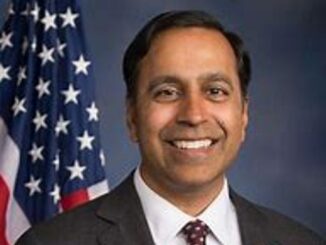The Government could have avoided the hate speech issue if the BJP had acted early
The Government’s decision to take a stern view of hate speech targeting religious beliefs, to distance itself from comments made by two spokespersons of the Bharatiya Janata Party (BJP), and to assert India’s traditional values of tolerance and respect for all religions is both welcome and reassuring for those within the country increasingly concerned about the increase in such speech. The ruling BJP’s move to suspend the spokespersons for comments made on a television channel and Twitter, respectively, is also a significant departure from the past, and would represent an inflection point in the debate over growing communalization, if it were not for two factors. The first, that the Government chose to react to the hate speech, targeting Islam and the Prophet Muhammed, more than a week after these were first broadcast. The second, that its reactions, and the BJP’s action appeared to follow statements made by foreign governments, beginning with Qatar, and then Kuwait, Iran, Pakistan, Bahrain, the United Arab Emirates, the Kingdom of Saudi Arabia, Indonesia, Jordan, the Maldives as well as by the 57-member Organisation of Islamic Cooperation and the powerful six-member Gulf Cooperation Council. However, the Government continues to ignore Indian organizations and groups that have expressed concerns about the statements made. It is possible that the Government chose to respond to Qatar with more alacrity as the Vice-President of India, M. Venkaiah Naidu, was beginning a three-day visit to the country. It is also significant that the Government was moved to act with sensitivity in this case, unlike its reaction just a week ago to the United States government’s release of a report on religious freedom in India, where it slammed the U.S. for playing “vote bank politics”. Some concern about a possible “street reaction” across West Asia, where more than eight million Indians live and work, may have also prompted the reaction, particularly after social media users shared the offending comments widely across the region.
Regardless of the reasoning, the statement issued by the Embassies in Doha and Kuwait, which said that the Government accords the highest respect to all religions “in line with our civilizational heritage and strong cultural traditions of unity in diversity” reflects some introspection within the establishment and the ruling party, and the line that has been drawn must be adhered to across society. There is also a case for similar introspection to be made within the media, particularly news television channels that appear to have turned prime time viewing into a prize-fight, encouraging the most radical voices to spar verbally every evening and engage in blatantly extremist hate speech. While the right to free speech must be upheld, and nobody should be allowed to threaten violence, the Government would have avoided the entire controversy if it had acted according to the law, and immediately engaged with the issue before it snowballed into an international incident.
(The Hindu)





Be the first to comment